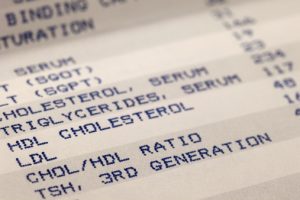 High cholesterol is associated with a variety of health issues – which means, managing your cholesterol levels is imperative for your well-being. Do you know your cholesterol levels? Are they too high? Below are five potential complications that can arise from uncontrolled cholesterol levels – and five good reasons to get those numbers back under control.
High cholesterol is associated with a variety of health issues – which means, managing your cholesterol levels is imperative for your well-being. Do you know your cholesterol levels? Are they too high? Below are five potential complications that can arise from uncontrolled cholesterol levels – and five good reasons to get those numbers back under control.
Five complications of uncontrolled cholesterol levels
Vision loss. The buildup of cholesterol in your blood vessels may impair the blood supply to your eyes, resulting in impaired vision or even vision loss. (Start fighting for your sight now while you still have a chance.)
Advertisement
Stroke. When cholesterol accumulates within the arteries, it can also block the blood flow to your brain. This in turn can result in a stroke, causing damage to your cognitive function as well as your nervous system. Higher cholesterol levels increase your chance of suffering a stroke and the associated complications.
Kidney failure. Your kidneys are vital for filtering blood, absorbing minerals, and producing hormones. Excess cholesterol may build up in the renal arteries, reducing the blood flow to the kidneys and impairing their ability to function. This may result in kidney failure in one or both of your kidneys, in which case you may require dialysis treatments to properly filter your blood.
Heart attack. As cholesterol builds up within the arteries, it impedes blood flow and makes the heart work harder as blood pressure rises. This increased blood pressure may result in a heart attack, as the organ struggles to pump blood through blocked channels. (A heart attack can happen suddenly without any symptoms.)
Leg pain. High cholesterol levels have also been linked with severe leg pain. Cholesterol deposits can block the vessels in the legs, reducing blood flow and causing pain or numbness in the extremities.
Knowing your cholesterol levels is extremely important for managing your health. If left unchecked, cholesterol can build up in the blood vessels and cause a variety of potentially serious health conditions. Be sure to get your cholesterol levels checked regularly and discuss cholesterol management strategies with your doctor.
Related: How much cholesterol should you have a day?
